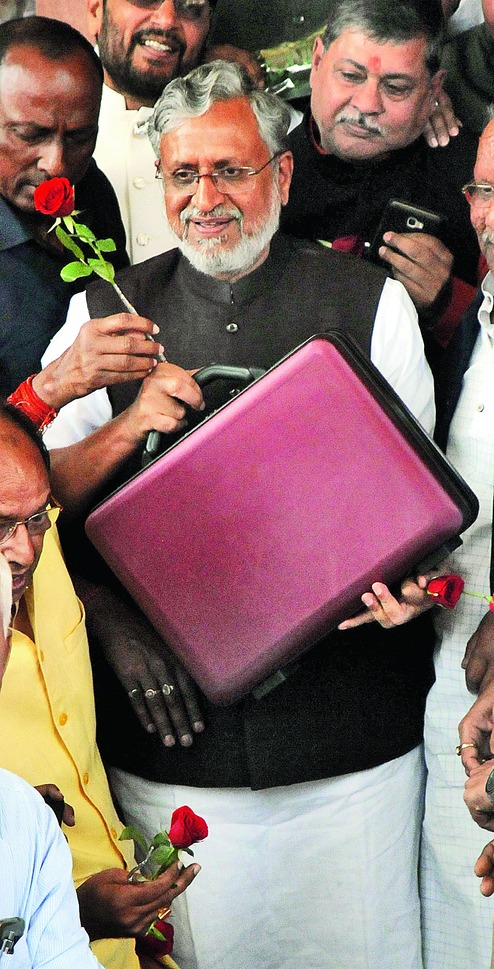
Patna: If the Bihar economic survey tabled in the legislative bodies recently is to be believed, consumption of honey and cheese has shot up after anti-liquor laws came into being in 2016 and the people of the state are saving Rs 5,250 crore per year by not consuming liquor.
The only problem is that economists seriously doubt the figures.
"It is guesswork and there is no correlation between the two - not drinking and saving money. There has been no scientific investigation. It is more of propaganda," said economist N.K. Choudhary. He, however, agreed that consumption of liquor has come down in Bihar after prohibition.
When deputy chief minister Sushil Kumar Modi tabled the Economic Survey for financial year 2017-18, there was a new avatar in the form of Volume 2 of the survey, which seeks to study the social impact of policies and programmes being implemented by the state government. This includes the seven resolves, Bihar rural livelihood promotion society (Jeevika), improvement of power, health, empowerment of women and girls, and tackling annual floods.
The report puts a stamp on virtually everything chief minister Nitish Kumar has been saying on prohibition - dip in crime and road accidents and a rise in consumer items - especially edibles. Citing figures given by COMPFED - the federation that markets milk and allied products under the brand name Sudha - the report says sale of honey consumption grew at 380 per cent and cheese at 200 per cent. Overall sale of COMPFED products grew at 17.5 per cent between 2015-16 to 2016-17.
"Even if anti-liquor laws are not implemented, sale of consumer items, particularly edible ones, grows. There is nothing to suggest this growth was due to anti-liquor laws," said an economist.
Incidentally, the survey says sale of saris, dress material, processed food, plastic goods and other items has grown. "These figures further indicate the gains of prohibition in Bihar," the survey said.
The survey has taken 2011 consumption figures and remarked that there were at least 44 lakh alcoholics in Bihar and even by "conservative estimates; each drinker had been spending Rs 1,000 per month on liquor and therefore the people of Bihar are saving Rs 5,280 crore per year. Incidentally, when anti-liquor laws were enforced the revenue loss was estimated to be Rs 5,000 crore per year. Economists say they were clueless as to how the figure of 44 lakh alcoholics was arrived at. "Besides, the survey has turned a blind eye to the parallel illegal liquor trade that has emerged stronger and stronger despite arrests," said an economist.
The survey also asserted that violence against women and children had dippedbecause of anti-liquor laws. Economist tend to agree with these views but point out that the economic gains and losses because of prohibition should be properly studied.










